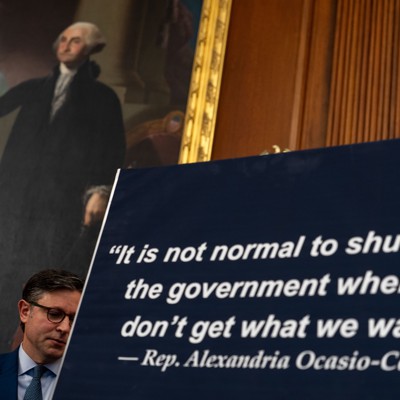Just eight days remain for lawmakers and the White House to reach a deal to fund the government past Sept. 30, the end of both federal agencies’ fiscal year and a full year continuing resolution.
Odds for a shutdown grew last week, as Senate Democrats rejected the House-passed measure to fund the government through Nov. 21. Both chambers are on recess this week, and the House is not expected to return to Washington until next month.
Here’s what federal workers can expect in terms of pay and benefits if the government shutters next week, based on guidance from the Office of Personnel Management.
Salaries: Neither furloughed federal workers nor those deemed essential and forced to work during a shutdown will be paid during a shutdown. But thanks to a law passed as part of the deal to end the 35-day shutdown during President Trump’s first term, all federal employees will automatically be granted back pay once funding resumes. Congress previously needed to approve back pay for furloughed employees following each shutdown.
Overtime similarly will not be awarded during the course of a lapse in appropriations, though it will be included as part of employees’ back pay once the government reopens.
According to the General Services Administration, the current biweekly pay period ends on Oct. 4, meaning federal workers could begin seeing the shutdown impact their paychecks as soon as Oct.10, provided the lapse persists that long.
Bonuses: Agencies may award performance bonuses during a shutdown, but those awards will not be paid until after funding is restored.
Unemployment: Federal employees who are furloughed are eligible to file for unemployment benefits in some states, but in most cases, they are required to return the money once they receive back pay after a shutdown has ended.
Health care: Furloughed and excepted federal workers will maintain their coverage under the Federal Employees Health Benefits Program during a lapse in appropriations. Premiums will accrue over the course of a shutdown and then will be deduced from employees’ first paychecks once funding has been restored.
In another change since the 2018-2019 partial government shutdown, enrollees in the Federal Employees Dental and Vision Insurance Program also will maintain their coverage during a lapse, with premiums automatically deducted from post-shutdown paychecks. Previously, feds’ dental and vision benefits were under threat of lapsing in instances of an extended lapse in appropriations.
And federal human resources officials responsible for processing FEHBP enrollment decisions, previously furloughed during shutdowns, are now deed essential. During the last shutdown, federal workers who underwent qualifying life events, like getting married or having a child, found themselves unable to add those new family members to their coverage.
Retirement benefits: Federal retirees in both the Civil Service Retirement System and Federal Employees Retirement System will continue to receive their regularly scheduled annuity payments during a lapse in appropriations. Contributions to the Thrift Savings Plan will be halted until agencies reopen, though the agency that administers the program, the Federal Retirement Thrift Investment Board, will continue to function unimpaired, as it is funded through employee contributions, not appropriations.
Leave: Federal workers cannot substitute leave for unpaid furloughs when the government shuts down. Previously scheduled leave will be cancelled, though agencies may honor scheduled leave among essential workers by placing them in a temporary furlough status for the time they planned to miss.

